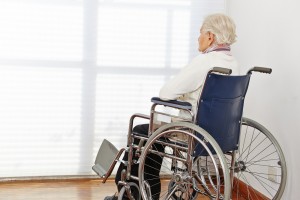
It is important to keep in mind that nursing home abuse is not always physical; it can be mental, emotional, financial, or even sexual. These types of nursing home abuse can be relatively hard to spot, especially if you aren’t familiar with the warning signs. The Dallas nursing home abuse attorneys at Wormington & Bollinger have years of experience representing victims of abuse and their family members. We understand what a sensitive subject this is and how difficult it can be to learn that your parent or elderly loved one is being abused by the very people you trusted with their care. Nursing home abuse and neglect occurs on a regular basis and often goes unreported. In the unfortunate event your elderly loved one suffered injuries, illnesses, or emotional or financial damages at the hands of someone within the nursing home, those responsible must be held accountable.
Signs of Nursing Home Abuse
When a nursing home and its caretakers fail to provide adequate care to residents or is abusing residents in any manner, victims can suffer significant physical, psychological, and emotional damage. According to the National Center on Elder Abuse (NCEA), 10% of all nursing home residents have suffered some form of abuse or neglect in the last year. Understanding the most common signs of nursing home abuse and neglect can prevent your loved one from further suffering. Many people are intimidated by the thought of nursing home abuse and opt to turn a blind eye, but this could be detrimental to the well-being of our senior population. With that in mind, here are a few signs of nursing home abuse that you should be aware of:
- Sudden unexplained injuries or physical conditions that cannot be explained
- Such as fractured bones, broken bones, bruises, burns, or other marks
- Poor personal hygiene
- Diagnosis of sexually transmitted disease
- Sudden and unexpected change in behavior
- Withdrawal from social activities and loved ones
- Isolation spearheaded by the caregiver
- Presence of a caregiver who is verbally aggressive or demeaning to the elderly individual
- Trauma
- Evidence that the resident has not been receiving their medication
- Lack of food
- Dirty or unkempt living space
- Physical issues from lack of nutrition
- Loss or lack of mobility
- Psychological issues
- Such as your family member closing themselves off from loved ones, signs of depression, unexplained bouts of anger or resentment
If you have noticed any of the above or other worrisome signs, we encourage you to contact Wormington & Bollinger right away and report the incident to your local authorities. Nursing home abuse and neglect is a serious problem that can only be stopped by spreading awareness and being proactive. Our Dallas nursing home abuse attorneys are prepared to fight for the rights and well-being of your loved one and ensure those responsible for the abuse they have suffered are held liable. Please do not hesitate to contact us today to schedule a consultation.




